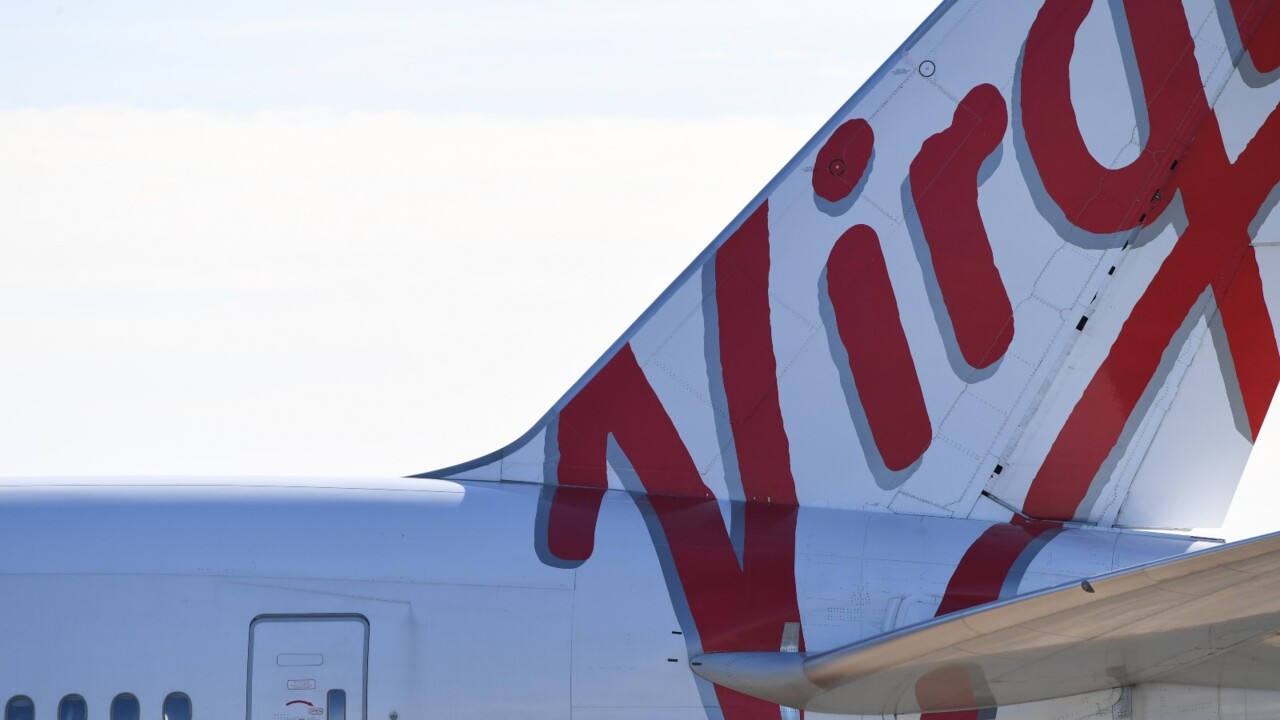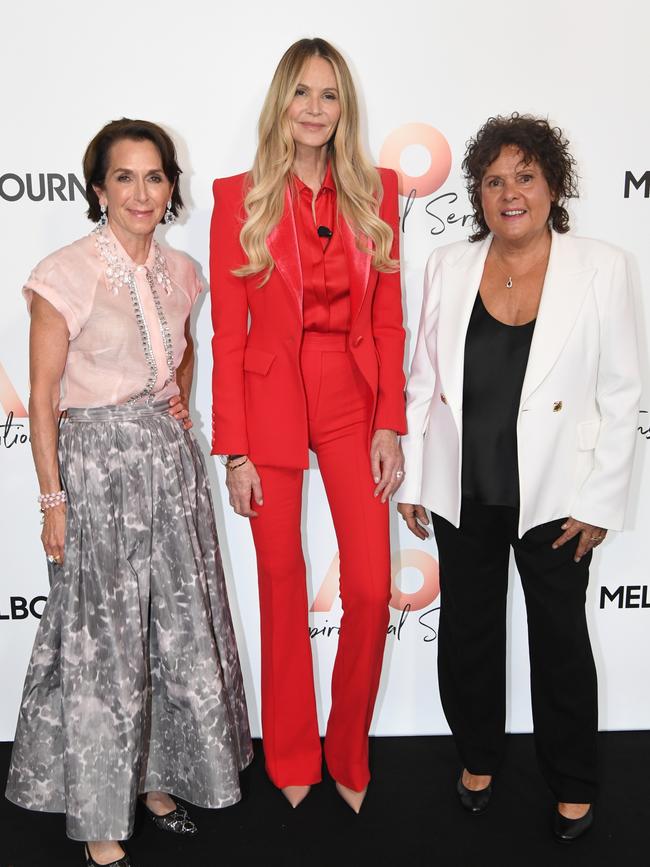Virgin CEO’s email to Velocity customers talks up performance, cancellation rates
Outgoing Virgin chief Jayne Hrdlicka has detailed better on time performance and cancellation rates in a letter to customers

Transitioning Virgin Australia chief executive Jayne Hrdlicka has told the airline’s 11 million-plus Velocity members, on-time performance and cancellation rates have improved significantly since suffering a tough start to the year.
January on-time performance data compiled by the Bureau of Infrastructure, Transport and Regional Economics shows Virgin Australia was the worst of the major airlines. Almost one in three flights arrived late and it had a cancellation rate of 5.4 per cent.
An email sent on Thursday night did not make mention of Ms Hrdlicka’s planned exit from the airline but claimed improved performance across the board.
When asked about Ms Hrdlicka’s assertions that on-time performance had lifted significantly in 2024 and cancellation rates were back to pre-Covid levels, a Virgin Australia spokesman said February data had showed improvement.
Throughout the month, just over one in four flights departed behind schedule and the cancellation rate was “fewer than 3 per cent”, the spokesman said.
In the corresponding pre-Covid period in 2019, Virgin’s cancellation rate was 1.5 per cent and 85.7 per cent of flights were on time.
The email to customers promised that Virgin Australia was “laser focused” on customer experience, and listed various benefits offered by the airline, such as its airfare sale that finished at midnight on Thursday.

It’s understood the marketing move was designed to show it was “business as usual” at the airline, following the announcement Ms Hrdlicka would soon vacate the CEO’s job.
Virgin Australia has insisted the decision was Ms Hrdlicka’s and related to the three to five-year commitment required to deliver an initial public offering (IPO).
However, high-level sources have suggested US private equity owners Bain Capital in fact asked Ms Hrdlicka to leave after being disappointed with the airline’s financial and operational performance under her leadership.
No timeline for her departure has been provided although the Virgin Australia board is in advanced talks with Miami recruitment firm Korn Ferry to find a replacement.
New data from JPMorgan showed Virgin Australia’s move to a middle-market carrier continued to hurt its profits on key routes.
Despite strong load factors, Virgin Australia’s yield of 28.3c per revenue seat kilometre on the busy Melbourne-Sydney route in January was 11.1 per cent lower than what it was pre-Covid.
In contrast Qantas’s yield of 51.4c per revenue seat kilometre was 12.2 per cent ahead of where it was in 2019.
The data compiled by analyst Anthony Longo said Qantas had 30.3 per cent of the capacity on the route, and Virgin Australia 30 per cent.
Across the so-called “golden triangle” routes of Sydney-Melbourne-Brisbane, Virgin Australia’s yield of 23.7c was 0.8 per cent ahead of 2019, and Qantas’s yield of 41.5c was up 17.2 per cent on five years ago.
On a more positive note for Virgin Australia, revenue on transcontinental or east-west routes, grew from $67.3m in December to $69.5m in January, thanks to more passengers.
However, the yield per revenue seat kilometre fell from 15.5c to 14.7c.
Qantas’ revenue on the routes fell from $148.4m to $131.5m in the same period, and yield declined from 23.8c per revenue seat kilometre to 22.4c.







To join the conversation, please log in. Don't have an account? Register
Join the conversation, you are commenting as Logout